
Online reviews play an undeniable role in a patients' doctor selection process. In July of 2020, we surveyed patients across the United States and our findings showed that 80% of patients use online reviews when they are selecting a doctor.
Since we know that online reviews are vital to a patients’ doctor selection process, we wanted to know the answer to another question: Does gender play a role in how online reviews are used by patients when selecting a doctor? To find the answer, we surveyed 1,500 people across the United States, who identified themselves as male or female, and here is what we found.
81% of women compared to 76% of men consider online reviews when selecting a healthcare provider. Does this mean that women are more investigative than men when it comes to choosing a doctor?
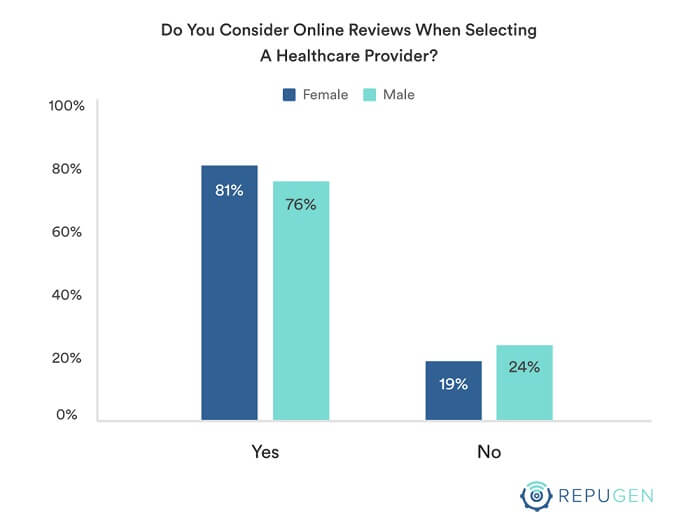
Since the difference is only marginally higher, this figure implies that women may be somewhat more conscious and investigative than men when it comes to considering online reviews.
Key Takeaway
Considering that the majority of both men and women rely on online reviews while selecting healthcare providers, it is highly essential for healthcare providers to develop and maintain a positive online presence.
Out of the 81% of women and 76% of men who consider online reviews, three distinct levels of review prioritization can be inferred.
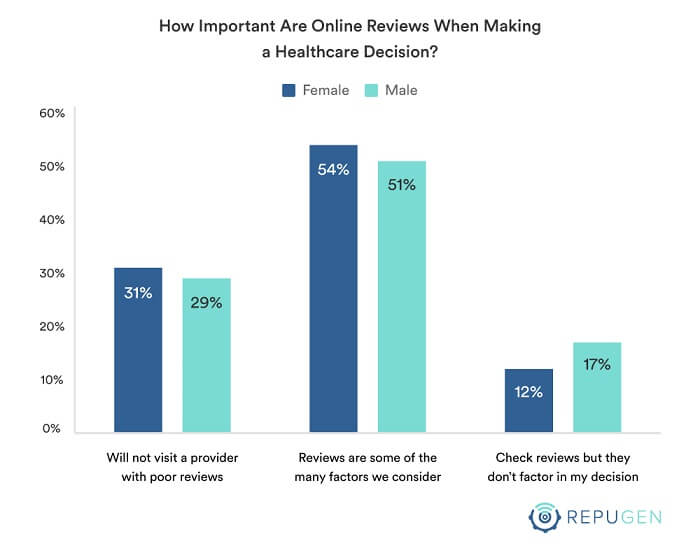
Key Takeaway
The three levels of review prioritization highlight a significant trend. At least 85% of women and 80% of men are giving thoughtful consideration to the online reviews of healthcare providers. Even those who consider online reviews to be moderately important (54% of women and 51% of men) constitute more than half of the patient base and should not be ignored. Since patients both men and women consider online reviews important in their provider selection process, it is vital for healthcare providers to maintain a positive reputation in order to grow their patient base.
Among all healthcare related review sites, Google emerged as the most used with 76% of women and 77% of men checking their potential doctors’ online reputation on that site.
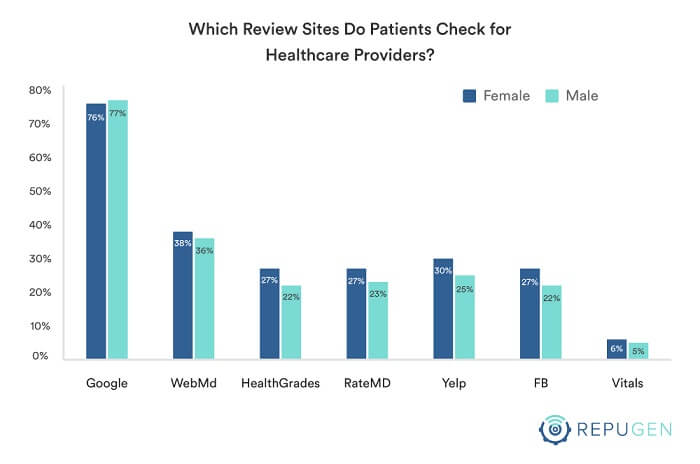
In terms of credibility, Google also outranked its competitors by a considerable portion of the population, with 36% of women and 39% of men vouching for the trustworthiness of Google’s reviews. WebMD and Healthgrades followed closely after Google and Facebook and Vitals being the least trusted of all review sites by men and women.
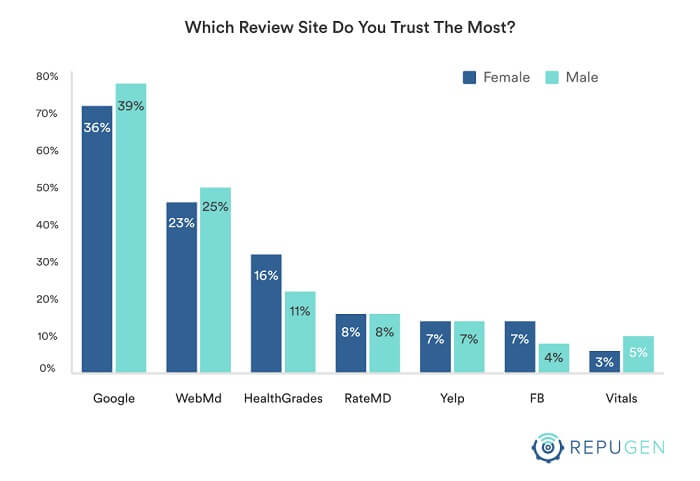
Key Takeaway
An almost equal percentage of women and men, 78% and 77% respectively, connected the age of the review to its relevance.
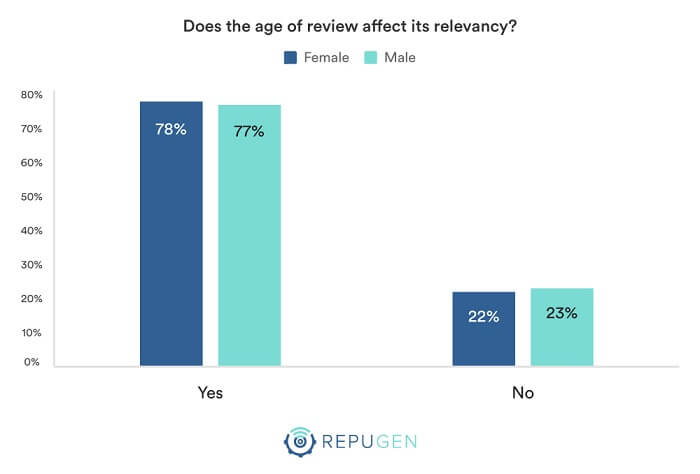
While men allowed longer grace periods, with only 25% of them considering reviews older than 2 years to be obsolete, 41% of women refused to rely on reviews greater than 2 years old.
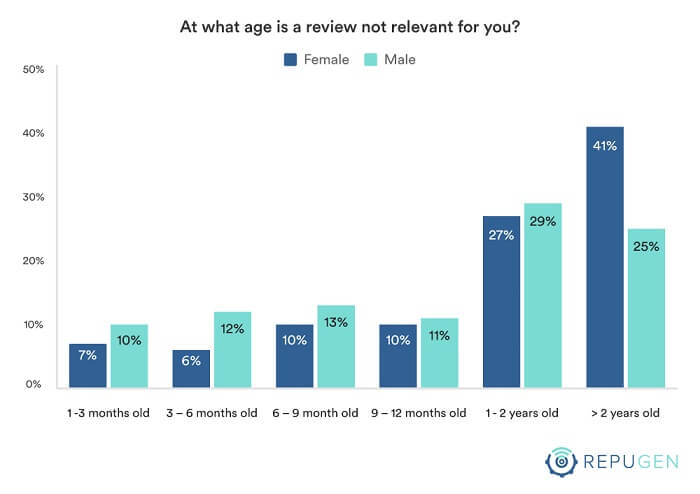
Key Takeaway
Keeping tabs on how often online reviews are posted could be difficult without the help of a reputation management solution. However, it is important to ensure that healthcare providers are constantly receiving online reviews to avoid the risk of losing a potential patient to stale data on relevant review sites.
Being referred by another medical professional emerged as an absolute gamechanger in the selection of healthcare providers for patients. What your medical colleagues think of you truly matters, as our findings show that 60% of women and 55% of men counted heavily on such referrals before considering a healthcare provider.
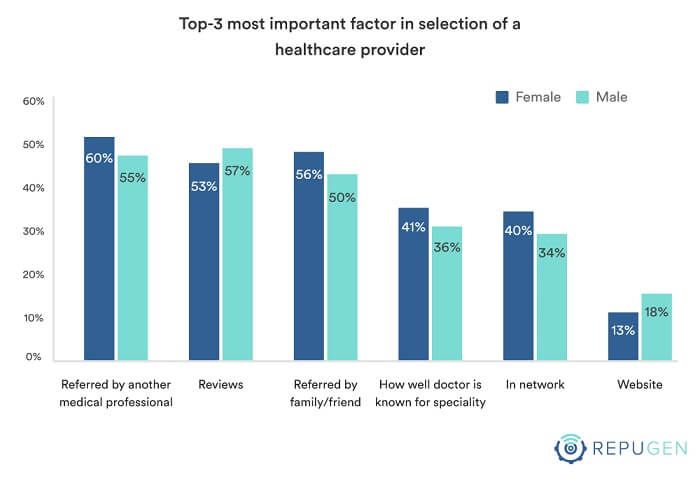
Key Takeaway
Networking and cooperation among healthcare providers and other related professions can ensure a greater outreach to potential patients. Apart from online reviews, both women and men rely heavily on the referrals of their existing healthcare providers before selecting a new doctor.
The role of online reviews in the patient's healthcare selection process is undeniably fascinating. Certain factors like the age of a review or the credibility of online review sites play an essential role, especially with women, who statistically appear to be quite dependent on online reviews for their health-related decisions.
Considering how both men and women appear to use online reviews in their doctor selection process, a proper method should be used to ensure your online reputation accurately shows how satisfied your patients truly are. Acknowledging the unique needs of both genders and understanding what drives their choices is the key to establishing a successful, profitable, and patient-oriented practice.
RepuGen is a leading healthcare reputation management solution, founded by Ajay Prasad, a digital marketer and online reputation evangelist. Through regular review generation, patient acquisition, and patient retention, the company has provided exceptional assistance to hundreds of health care practices across the United States. RepuGen’s robust reputation management tool has been specifically designed to help health care providers manage their online reviews to match actual patient satisfaction.
0 Comment
Your email address will not be published. Required fields are marked *